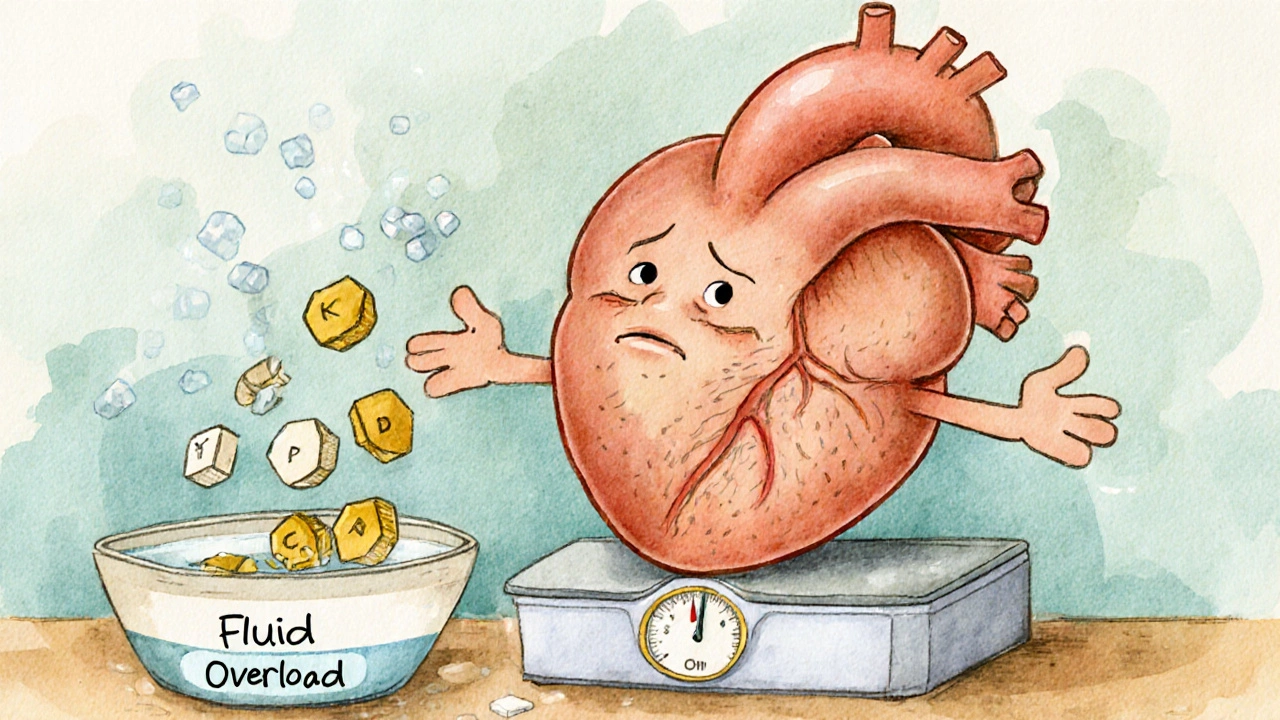Diuretics: Managing Fluid and Blood Pressure Made Simple
Ever heard of diuretics? They’re basically medications that help your body get rid of extra salt and water through urine. If you’ve been told you have fluid buildup or high blood pressure, diuretics might be part of your treatment plan. They help your kidneys flush out unnecessary fluids, making it easier to keep your blood pressure in check and reduce swelling.
How exactly do these water pills work? Think of them as helpers telling your kidneys to send more salt to the urine. Since salt holds onto water, it drags excess water out too. That’s why after taking diuretics, you’ll notice more trips to the bathroom. It’s your body’s way of balancing fluids.
Common Uses for Diuretics
Besides high blood pressure, diuretics are often used to treat conditions like heart failure, where excess fluid builds up in your lungs or legs. They can also help with certain kidney or liver problems that cause swelling. If you’ve ever dealt with bloating during PMS or other situations where your body holds water, diuretics might come up as a short-term solution.
Keep in mind, diuretics come in different types, like thiazide, loop, and potassium-sparing. Your doctor picks the right one depending on your health needs. For example, loop diuretics are strong and used in more serious fluid retention cases, while potassium-sparing diuretics help prevent your body from losing too much potassium.
What to Watch For When Using Diuretics
While diuretics are helpful, they can come with side effects. Common ones include feeling thirsty, muscle cramps, or lightheadedness, especially when you stand up quickly. This happens because of changes in your blood volume and electrolytes. It’s smart to check in with your healthcare provider regularly and get your blood tested to make sure your potassium and sodium levels stay in balance.
Also, don’t skip doses or change how you take your diuretics without talking to your doctor. Mixing them with some other medications or supplements could cause problems. The goal is to safely manage your condition while minimizing any risk. If you notice unusual symptoms like rapid heartbeat or severe weakness, get medical advice right away.
At ZipHealth.co, we believe understanding how your meds work helps you stay in control. Diuretics might seem straightforward, but a little info goes a long way. If you have questions about specific diuretics or how to buy them safely online, check out the detailed guides in our tag section or ask your healthcare professional.
Hydration and Diuretics: How to Balance Fluid Intake to Avoid Side Effects
- Keith Ashcroft
- |
- |
- 12
Learn how to balance fluid intake when taking diuretics to avoid dehydration, electrolyte loss, and dangerous side effects. Practical tips on water, electrolytes, weight tracking, and what to avoid.
View moreManaging Diuretics and Hypokalemia in Heart Failure Patients: Practical Tips
- Beata Staszkow
- |
- |
- 9
Learn how to safely manage diuretics in heart failure patients while preventing dangerous drops in potassium. Practical tips on medications, monitoring, and diet to reduce hypokalemia risk and improve outcomes.
View moreTop Alternatives to Lasix in 2024: A Comprehensive Guide
- Keith Ashcroft
- |
- |
- 6
Explore nine alternative diuretics to Lasix available in 2024, each with unique properties for treating fluid retention and hypertension. Understand the differences in potency, side effects, and specific medical conditions treated by these medications. This guide presents options from thiazide and loop diuretics to potassium-sparing agents, providing valuable insights for those seeking alternative treatments. Learn about each option's advantages and potential drawbacks to make informed healthcare decisions.
View more


